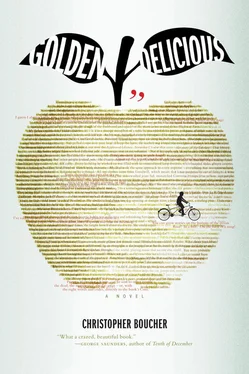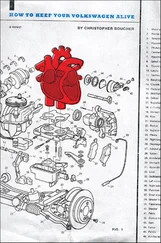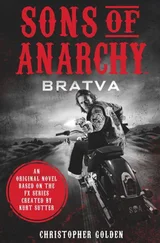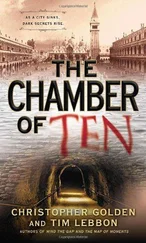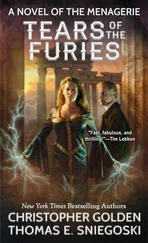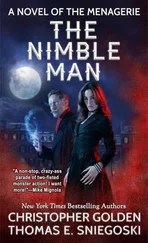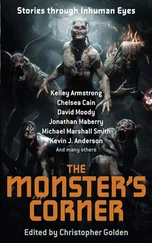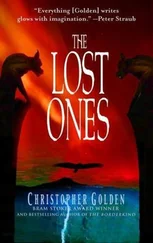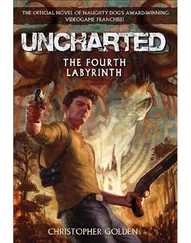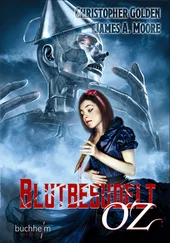Between bites Joump said, “Sure you OK?”
“No,” a thought said.
“Yeah,” I said, my mouth full. Then I said, “What do you think the story is with that hole, Uncle Joump?”
“There is no story — it’s a hole,” said Joump.
“Now that I think about it, I’ve seen those before,” I said. “I always thought they were cigarette burns.”
“Drink your shake,” Joump said.
I took a sip. The shake was really good — so good, in fact, that I forgot in that instant about the hole at Wolf Swamp. First I forgot the reason we went to the swamp, and then I forgot about the swamp altogether. I just remembered driving with Joump in the truck and—
What was I—
What was I talking about?
Reader: Wild sinks.
Oh yeah.
Reader: Did you ever replace them?
Replace whatnow?
Reader: The sinks. You were telling me about Joump and the sinks.
You want to hear a story about Joump ? I’ll tell you a sad one. When I was about fifteen? The buildings were belly-up by then and Joump had to take a job at the sawmill on Kellogg River. He was back to kaddishing hard — ten, twelve fruits a day —and one morning he showed up to work all mourned and he was fired. His driver’s license had been revoked by then, so he was thumbing rides with coworkers. With no way to get home, he had to call my Dad to come pick him up. My Dad and I drove into the dirt lot of the mill just as Joump was walking out of the office. I remember he had this verb-eating grin on his face, like he’d just won a prize or something. A lateral armsaw who also worked at the mill was trudging through the parking lot, on his way into the office as Joump was walking out. The saw said something to him — I don’t know what — and Joump’s face fireworked; he rushed at the saw, belly pushed forward and arms flailing.
“What’s this?” my Dad said from inside the cab.
The saw whirred to life.
“Shit,” my Dad said. “Shit.”
I saw Joump pull his arm back, and then, a flurry of fists and blades. My Dad jumped out of the truck. A Mother, patrolling overhead, saw the fight and dropped down into the parking lot to break it up. It was over by the time she got there, though — Joump’s face and leg were cut badly. He was bleeding and he couldn’t speak.
The Mother prayed to an ambulance, but my father didn’t want to wait — he put Joump in the truck and we drove him to the hospital. He prayed out loud to my Mom that he was on his way, that Joump was with him, that he was in bad shape. I remember the way his voice trembled as he prayed. The past didn’t matter. This was his brother .
Sometimes my Mom would leave me in that room in the Appleseed Hospital for hours — a whole day, even. When I got bored of sitting there, I’d sneak out and go exploring. I met some amazing people in and around that hospital — once, I was standing in line at the cafeteria when I struck up a conversation with someone who told me that he had three minds. He spoke three words at once, so I believed him.
“Does that mean you can think three thoughts at the same time?” I said.
“Yes/No/I’m not sure,” said the man.
Another time I saw someone who bore a striking resemblance to a very large chicken. He was reading a book in the waiting room outside the emergency room, and I sat down near him. I wanted to understand if his chickenness was a costume or not. After a while, a woman shuffled out with a bracelet around her wrist. The giant chicken looked up. “Ready?” he said. The woman nodded and they walked through the revolving doors.
Every once in a while I’d see the Memory of Johnny Appleseed in the waiting room, too. As people forgot who Johnny Appleseed was, the Memory of Johnny Appleseed experienced health problems: contusions, confusions, delusions. He’d show up with his holy satchel and wait to be seen. They’d patch him up and he’d go back out to work in the fields.
One day, I was walking the halls of the hospital when I opened a door to an emergency staircase that I’d never seen before. It led me all the way down to the basement; I opened the heavy basement door to find a dusty storage room with cinder-block walls. There wasn’t much there — just some old bicycles, a vending machine, and a historical couch. That couch, I decided, was from the Revolutionary War. It had probably helped fight for our freedoms! And now here it was.
I put some meaning in the machine and chose a pack of gummy tables.
“Good choice,” said the vending machine.
“Right?” I said. The candy dropped to the bottom of the machine; I found it and ripped it open.
“Have you tried the gummy refrigerators?” said the vending machine.
“Refrigerators?” I said.
“They’re awesome,” she said, pointing to her navel. I looked through her belly to the stacked bags labeled GUMMY FRIDGES. “There’s some chemical that keeps them actually cold. And when you open up the gummy door there are gummy perishables inside.”
The vending machine’s name was Laura — she was a student at East Appleseed Voc. When I told her my name she said, “Your name is just an underline?”
I nodded and ate a table.
“I’ve never heard of anyone with that name before,” she said.
“It’s French Canadian,” I said.
“Is that where you’re from?”
I chewed. “I’m from the margin,” I said. “We moved to Appleseed when I was three.”
“Ooh la la,” she said. “Are you meaningful?”
I shook my head.
“Isn’t everyone in Appleseed meaningful?”
“I don’t think so,” I said. “There are some nice houses, but.”
“You probably are and you don’t know it,” she said.
“Maybe,” I said.
We talked for a few more minutes and then I went back upstairs. I returned to the basement when I visited the following Wednesday, though, and again two days later. Soon I was spending hours with the vending machine. Chips, candy, mints — I spent all the meaning I had on her. I liked sitting on that veteran couch, talking to the vending machine and filling up on salt, corn syrup, sugar, and oil. For a long time, I think I associated that sadfood with the syntax in my heart.
Who am I kidding? I still do that now! If I told you what I ate last night — what, and what it was made of, and how much, you’d probably close this book right now.
Soon, Laura was calling me from the basement of the hospital almost every night. My Dad would answer the phone in the kitchen and hand it over to me, and I’d carry the receiver around the corner into the living room, stretching the coiled cord as far as it would go.
By that point I was visiting my Mom three or four times a week and spending almost all of those visits in the basement. One day I stopped by the hospital unannounced and I found my Mom wheeling the corpse of a problem down the hall. I talked with her for five minutes and then said, as casually as I could, that I was going downstairs. “Why are you always going down to the vending machine?” said my Mom, a star in her eye.
I shrugged. “I’m hungry,” I said.
She stared at my belly. “How can that be?” she said.
I was always careful, when visiting Laura, to keep my distance — to sit at the far end of the couch or on the steps across the room. But one day I was eating some FatCrackers and she looked over at me and said, “Hey.”
“Wha,” I said.
“You’re too far away,” she said.
“Mm?” I said.
“Why don’t you come sit next to me?”
I swallowed. “I can’t.”
“I want to be close to you,” she said.
“I can’t,” I said again.
Читать дальше
